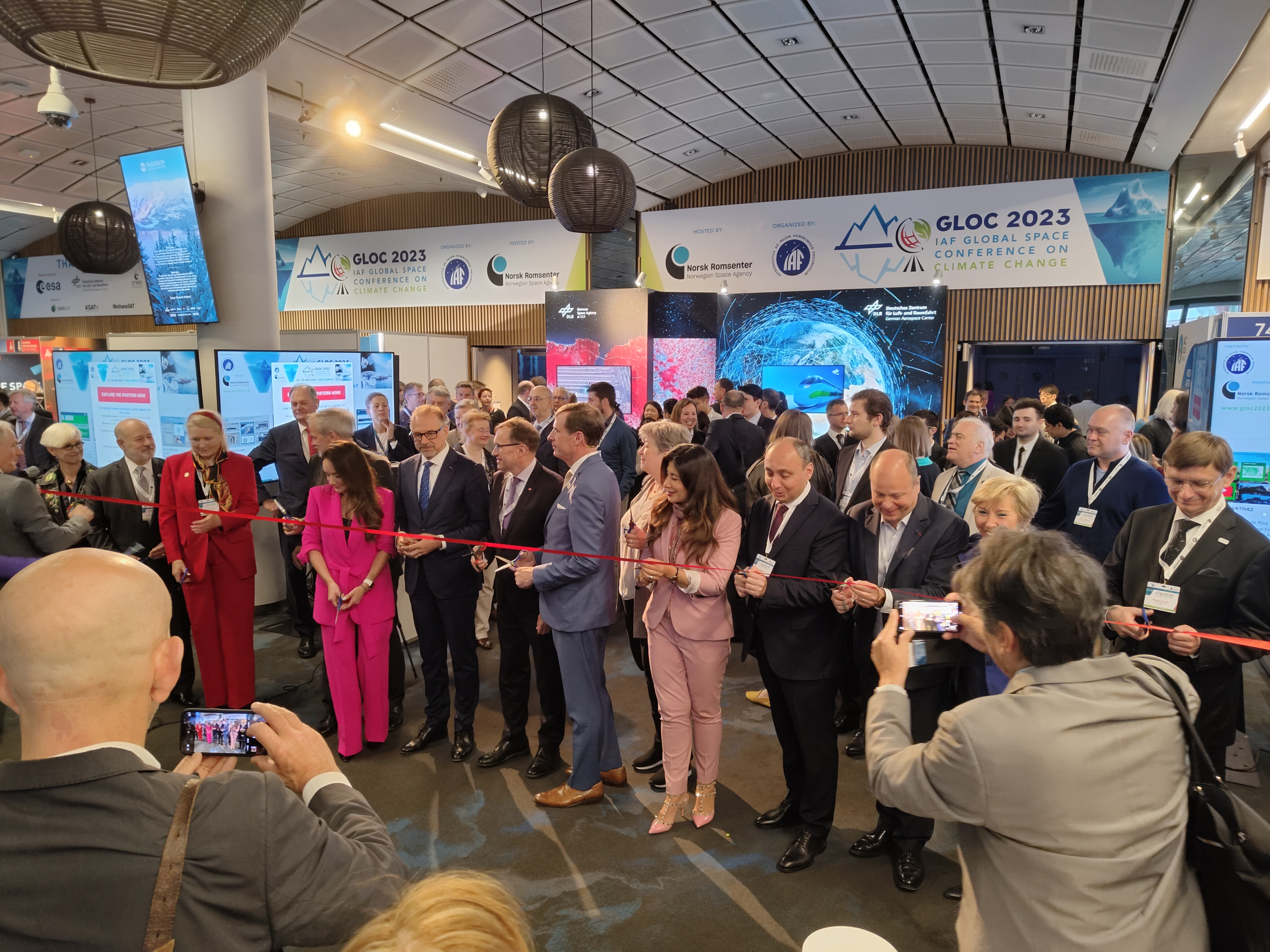 This year, I had the privilege of representing the University of Glasgow’s OirthirSAT team and the UK Space Agency at the 2023 IAF Global Space Conference on Climate Change (GLOC 23) in Oslo, Norway.
This year, I had the privilege of representing the University of Glasgow’s OirthirSAT team and the UK Space Agency at the 2023 IAF Global Space Conference on Climate Change (GLOC 23) in Oslo, Norway.
As a member of the international programme committee, I was tasked with shaping the conference to deliver an informative and cohesive programme of technical sessions, plenary talks, and panels.
I was fortunate enough to be invited to co-chair two sessions at the conference, the first on Climate Change Impacts and Challenges and the second on Weather, Climate and Environmental intelligence.
My attendance was generously sponsored by the UK Space Agency as part of the Nanosat Competition Programme and its ongoing activities to develop the UK’s next generation of space talent.

UK Space Agency representation
It was great to see a large delegation from the UK Space Agency at the conference, including engineers directly assisting with the OirthirSAT nanosatellite mission, and Director of Missions and Capabilities, Harshbir Sangha, who took part in a panel discussion focusing on the role of space missions and systems in understanding and managing disaster risk.
The first plenary session on the current state and prospects of Earth painted a stark picture of the current battle against climate change and featured notable speakers, including Director General of the European Space Agency, Josef Aschbacher, Norwegian Minister for Climate and the Environment, Espen Barth Eide, and NASA Chief of Staff, Susie Perez Quinn.
Each speaker brought with them their view of working directly on climate policy and space missions and highlighted the need for greater cooperation and outreach to the general public to be able to improve the global response to climate change.
Key Themes
Several of the talks presented focused on the monitoring of methane and how early detection of methane leaks using satellite imagery from industrial areas could drastically improve the responsiveness of ground response to minimise methane leakage. One such talk was from MethaneSAT, a joint American and New Zealand mission aiming to monitor methane emissions from oil and gas operations around the world.
This mission also showcased how governmental, academic and industry partners could work together to fund the development, launch and operation of a satellite platform for a climate change mission.
A key discussion point from the conference was the access to data and amount of data that is usable by scientists and engineers.
One impressive and award-winning piece of work from NASA, ESA and JAXA presented at GLOC 23 was the Earth Observing Dashboard, available here. This web interface provides educators and researchers with easy to access climate data from all over the globe.

The discussion also highlighted the need for targeted and specific data rather than the large and unmanageable datasets that can be difficult to trawl through.
This is an aspect of the OirthirSAT mission that we have been keen to stress, with only the most critical data provided to ensure that the data product is as accessible as possible.
The other key takeaway is the knowledge gap between the climate scientists, engineers and data analysts that work directly with data and the wider public, especially governmental organisations outside of the climate sphere.
Further work to make data accessible, understandable, and relatable to everyday experiences is critical in realising wider “buy-in” for climate policy, and hosting the GLOC conference has definitely highlighted this requirement.

It is clear from the IAF sponsored student cohort that young people have an important role to play and should be able to help shape and steer future conferences.
The event has massively boosted my confidence and shown that even student projects such as the OirthirSAT mission can provide vital information in the fight against climate change.
I’d like to acknowledge and thank the UK Space Agency again for providing funding to attend GLOC 23 as it would not have been possible without the financial assistance.
Leave a comment